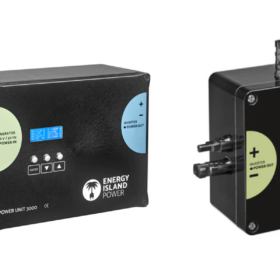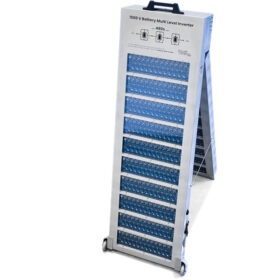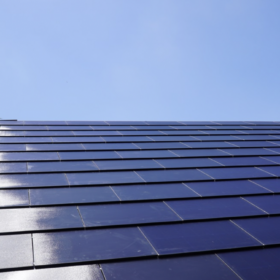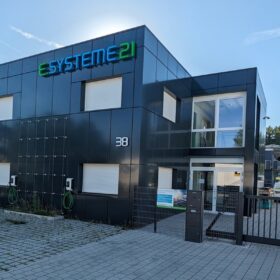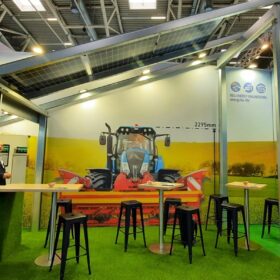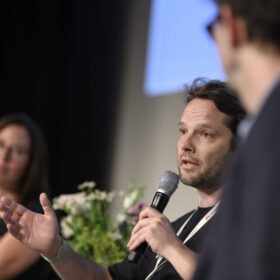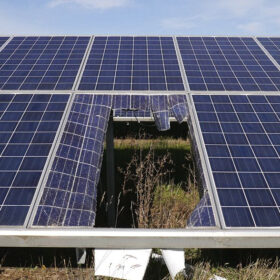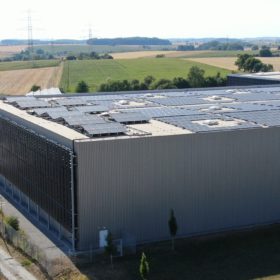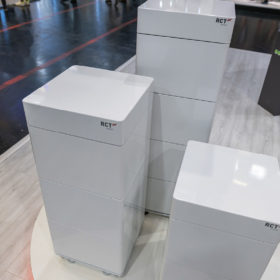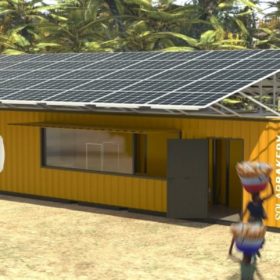German startup launches bidirectional charging kit for EVs
Energy Island Power, a German startup, has developed a connection kit that allows electric vehicle owners to use their car’s power to support home energy needs by integrating with the solar inverter and the home grid.
Power electronics for customized battery energy storage
Startup p&e power&energy is offering multilevel inverter technology to manufacturers and integrators of battery energy storage systems (BESS). Interconnecting individual cells enables cost savings and the service life and efficiency of the systems, which can be individually configured for each application, can be increased.
Paxos Solar unveils glass-glass PV tile with heat pump integration
Paxos Solar has developed a new glass-glass PV tile that integrates with heat pumps, featuring Longi’s back-contact solar cells. The 44 W, 59.5 cm x 48 cm tile can also produce heat for residential systems.
German firm hits energy independence with solar, batteries, hydrogen
Esysteme21 has built a 100% self-sufficient energy system with photovoltaics, hydrogen and battery storage. The German solar company describes the concept as a solution for medium-sized enterprises.
69 MWp agrivoltaic project underway in Rhineland-Palatinate
One of the largest agrivoltaic power plants in Europe is currently under construction in the southwestern German state of Rhineland-Palatinate. REG Energy Engineering has designed a new, material-saving substructure for the project that allows for livestock grazing.
Home energy management systems: Compatibility, good forecasts and efficiency
The quality of home energy management systems is a concern for the industry. More than 300 participants at the pv magazine Focus Event in the conference center of the Munich Trade Fair Center made this clear. To provide a glimpse into the “black box,” manufacturers, scientists and users discussed the most important criteria.
Weekend Read: A 10 GW time bomb
It is estimated that 10 GW of solar modules in Germany suffer from prematurely aging backsheets, with sites of all sizes affected. pv magazine Germany’s Cornelia Lichner looks at how to detect and repair such defects.
Polypropylene absorber to simplify brine heat pumps’ adoption
German company Mefa Befestigungs- und Montagetechnik has developed absorbers made of polypropylene that are intended to simplify the use of brine heat pumps. The novel technology should make it possible to combine multiple heat sources, including water, earth, air and also ice storage all within a single system.
The weekend read: Energy storage efficiency and prices determine economics
Estimating the total cost of energy storage connected to a rooftop PV installation is a complex affair, involving factors such as tax, the policy environment, system lifetimes, and even the weather. As part of its extensive overview of distributed energy storage in Germany, pv magazine Germany analyzed the efficiency of different battery energy storage systems to create a comparable index that illustrates the cost of a stored kilowatt-hour.
Solar bakery as a containerized solution
The 52 kW containerized solution is being developed by German start-up Solarbakery. The bakery’s production process was adapted in such a way that the majority of electricity consumption is already incurred during the day and is only baked briefly in the dark before dawn.
